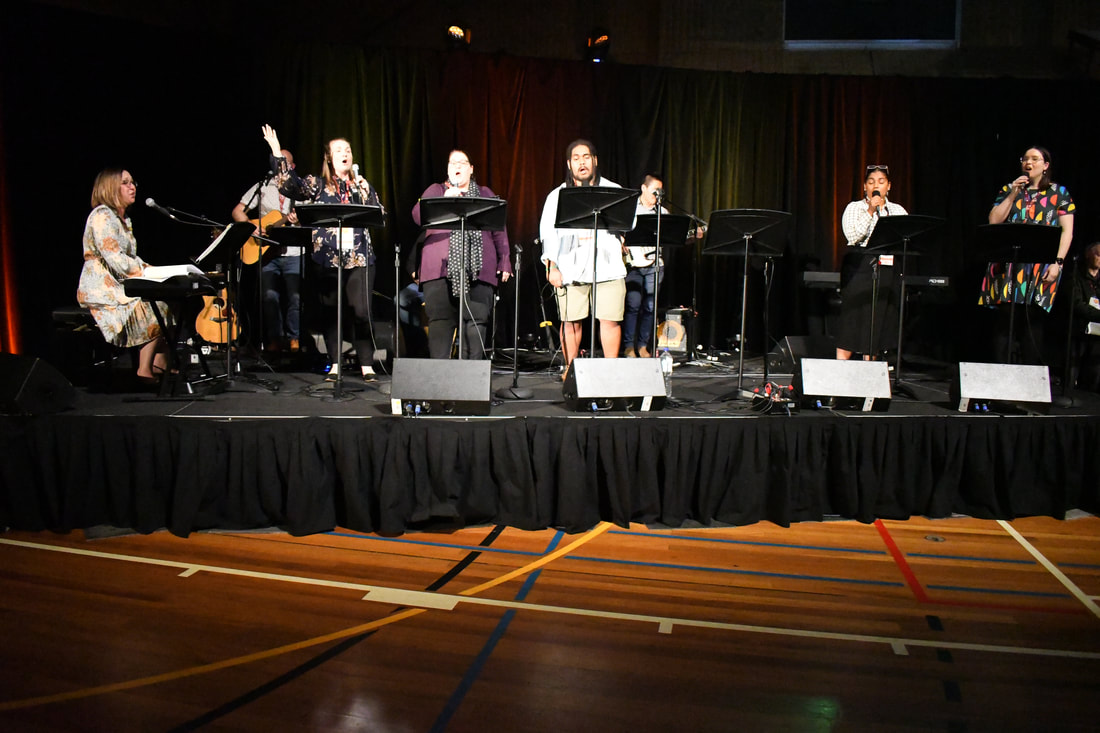|
By Lauren Bierer The Archdiocesan Pastoral Services Team recently hosted a retreat at the Henley Beach parish hall for liturgical musicians. An invitation to take time in prayer, reflection, and renewal in the company of other musicians.
The day was led by David and Emma Kruse, who work for the Brisbane Archdiocesan Office for Evangelisation. In 2022, the Kruses launched Enemy Love Records as a platform to produce and promote high quality Catholic music and to support a ministry to musicians and artists. The retreat brought together choir members, professional musicians, cantors, guitarists and accompanists who volunteer their time and talent to their parish. There is a great need for those in the music ministry in our parishes to be renewing ourselves each year. Reflecting on the music we know, the music we’d like to introduce and what can be put on the shelf to rest for a while. The breadth of repertoire available to us can be equally a blessing and a hindrance; with beloved hymns and chant from long ago as well as new music continuously being created as our congregation evolves.
0 Comments
Author: Jenny O'Brien Early in June we celebrated the feast of Pentecost, often referred to as the “birthday of the Church,” when Peter and the other apostles presented the Good News of Christ to the Jerusalem crowds who heard them speaking in their own language. So we could say that, right from the beginning, the character of the Church has been multicultural!
Today our parishes are more and more made up of people from countries around the globe who have settled in Australia either through normal channels of immigration or because they have fled war or persecution in their home country. And yet, in many instances, long-term Australian residents remain unaware of the many different cultures that are represented in their parish and still see themselves as predominantly Euro-Australian. Since the first characteristic of any Christian community ought to be hospitality, we would do well to reflect on the way we celebrate our Sunday liturgies so that all members of the community feel appreciated and included in the liturgy. What is involved in preparing a “multicultural” liturgy? Author: Jenny O'Brien It was St Augustine who famously said, “We are an Easter people, and Alleluia is our song.” In more recent times, this statement was taken up by St Pope John Paul II who reminded his listeners that for Christians, Easter is not just an historical commemoration, but the most central reality in our faith. It affects our very identity and dictates the way we live our lives. Jesus, who died on the cross, an object of derision and failure, abandoned by almost all his followers, was raised to new life. Without the resurrection, the death of Jesus would have been pointless. With the resurrection, we can live secure in the knowledge that we have been set free from the slavery of sin and death, that the way to eternal life has been opened up for us.
|
|
Catholic Archdiocese of Adelaide
|

